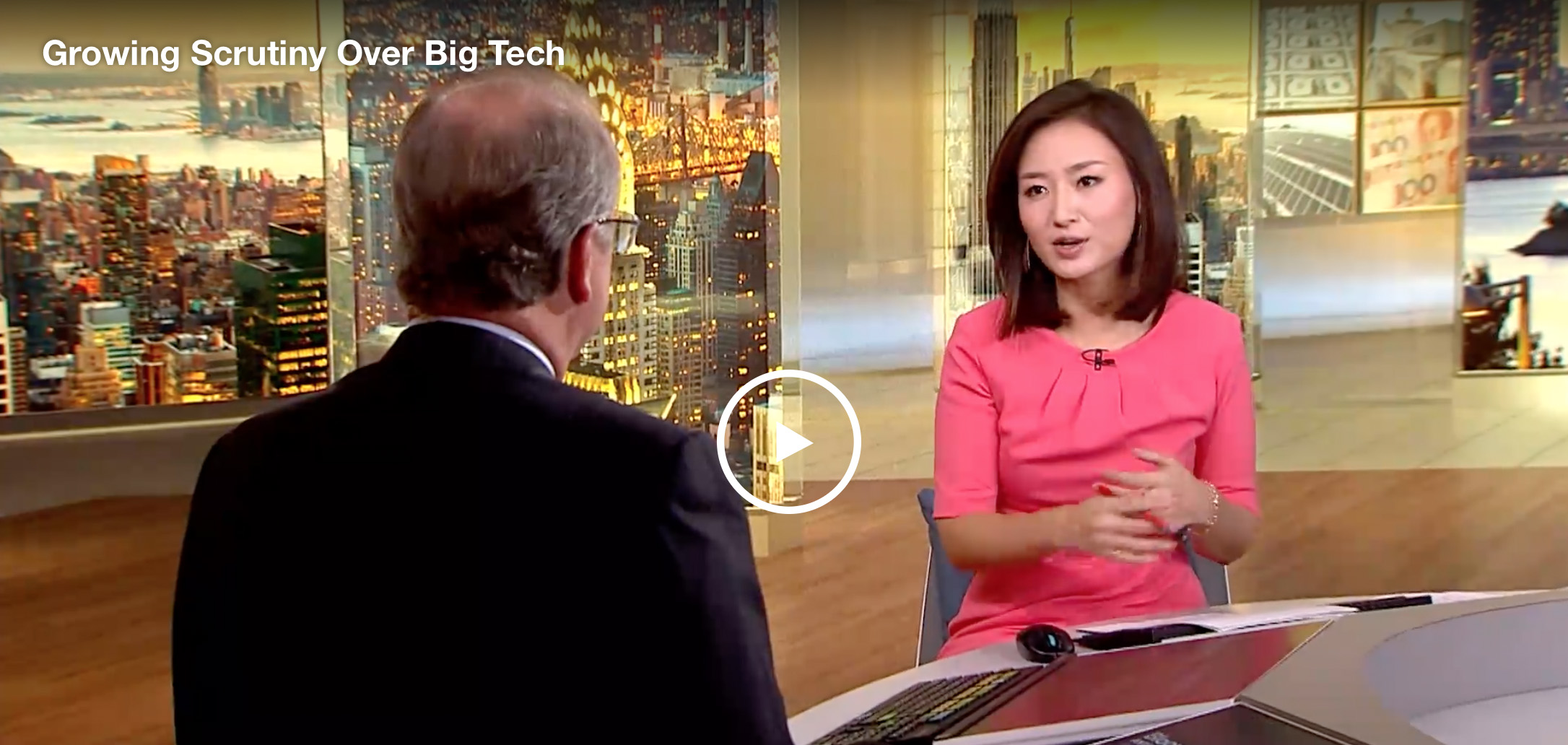David Garrity discusses cloud computing…
1) Bloomberg: https://www.bloomberg.com/news/videos/2019-10-28/growing-scrutiny-over-big-tech-video
2) Twitter: https://twitter.com/GVAResearch/status/1188839679501713408?s=20
3) Linkedin: https://www.linkedin.com/feed/update/urn:li:activity:6594605749333213184/
1) Tech – Cloud Computing Growth Remains Solid, But Quality Control Issues Threaten Tech Majors: One of the major shifts of interest to investors has been that of enterprise computing to “cloud” platforms. In this regard, there have been three major competitors – AMZN, GOOGL & MSFT. While GOOGL results won’t be out until after the close Mon 10/28, the indications from AMZN (AWS 3Q19 revenues $9bn, +34.7% year/year vs. +37% y/y in 2Q19) and MSFT (Commercial Cloud 3Q19 revenues $11.6bn, +36% y/y) indicate that while cloud adoption growth is decelerating from earlier levels, it still remains quite solid. With major growth areas such as cloud computing remaining robust, the near-term prospects for the tech sector remain positive. However, there are issues that should concern investors in terms of quality control that need to addressed as the major tech companies have become greater factors in consumer markets. For example, AMZN has been found to be delivering rotten food to consumers as it does not monitor its inventories to exclude items that have gone past their “sell by” dates. Also, AMZN has been using clothing production sources that have been shunned by others for unsafe work practices. As such, AMZN is likely to draw the attention of regulators. The company would do best to clean up its own act before others do it for them. Relative to FB (reports after the close Wed 10/30), CEO Mark Zuckerberg has been conducting speaking and testimony tour in Washington, DC in which he has tried to claim First Amendment rights for the company’s “disinformation for profit” business model. While that might accord well with the preferences of the current Administration, the political tide is clearly shifting in ways that will require FB and other social media companies to meet the content standards (e.g. factual truth) that other more traditional news and media organizations have upheld for years. Time to become accountable, Mr. Zuckerberg.
2) Markets – High Yield Spreads Do Not Call For Recession In 1H20: While indications are that the Administration’s self-inflicted trade war with China has brought sectors (i.e. manufacturing, agriculture) representing roughly 20% of the US economy into recession, it is useful to look to areas of the financial markets that historically served as harbingers of recession to see whether there will be follow-through to the broader economy. In this regard, a cursory examination of the interest rate spreads between BB and BBB corporate bonds is useful.
|
|
|
|
The data show the following:
A) The average BB/BBB spread from 1997 to now is +164 basis points. As with BBB spreads, these tend to widen ahead of recessions. From January to December 2000 they increased by +62 basis points. In 2007, BB/BBB spreads widened by +130 bp over the course of the year. Current BB/BBB spreads sit at +74 bp (BB: +223 bp, BBB: +149 bp). The conclusion is this marginal slice of the US corporate junk market shows little concern regarding an imminent recession.
B) BB spreads over BBB are well below long-run averages. The only times this spread shows similar tightness is March 2005 and the first half of 2007. As the chart clearly shows, there is no move higher for BB spreads underway right now. Not pictured but worth mentioning, the current +74 basis points is lower than October 1st (+81 bp) and flat versus a month ago (+73 bp).
Based on the above, corporate bond markets see little likelihood of a US recession or a material chance of weaker corporate cash flows in the near future. The bearish argument is that ultra-low interest rates have permanently skewed corporate bond payouts to the downside as asset owners reach for yield, thereby limiting their predictive power and setting up a pretty large cliff for these assets when recession does hit.
Separately, note recent WSJ article highlighting how ratings agencies have been giving remarkable leeway to BBB companies, a sentiment echoed by several investment banks of late. Rating agency credit rating laxity historically leads to financial crisis as it leads to risk being mispriced. Caveat emptor.






